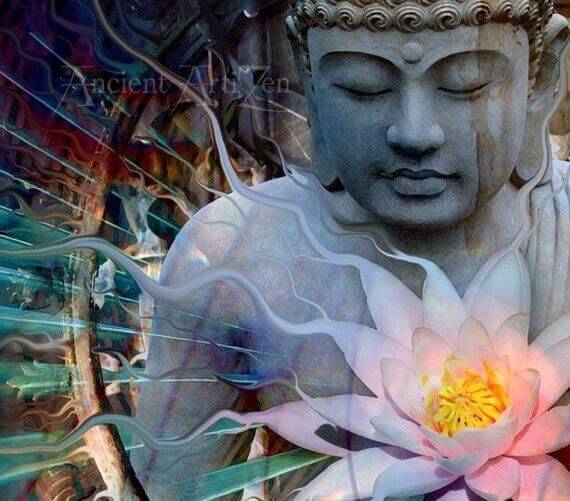It is curious to see how the teachings of Buddhism or Hinduism actually offer us a whole psychology adapted to our personal growth, each is free to recognize them or not, to accept concepts such as reincarnation or this more spiritual vision of life.
Leaving aside these perhaps more controversial aspects, it is never necessary to think of them as reflective, to accept that they all share the same fears and needs, and that, in essence, we can use similar strategies to succeed.
- The Dharma speaks of aspects as interesting as the need to have a purpose in life.
- To act honestly.
- With humility.
- Recognize one’s talents as a form of inner recognition.
The Dharma, in Sanskrit, has several definitions, but in each of them appears the same essence: it is the law of Buddha and also his protection turned into purpose, a principle that must be fulfilled with nobility.
We’re here? Physical in appearance to get an apprenticeship and get closer to that spiritual part that is, in fact, our true nature.
Let’s look at the four truths of the Dharma and at least try to reflect on these interesting principles.
First, remember that the Dharma is always represented in a circle, so Buddha would have passed on his laws to the world, which were then acquired by different currents of thought and continue today to apply its principles and religion.
This circle symbolizes, in turn, the vital movement of death and rebirth, a beginning and an end that never end, a circle in which the Buddha’s teachings are disseminated, found and where humanity has the opportunity to receive these principles to open itself. and move on.
Let’s see what the 4 truths written on it are
Humanity is inscribed in a deep sense of dissatisfaction. Being born and dying involves suffering, the memory of the past and the mistakes made subject us to continuous unrest.
There seems to be a common agreement in which one of humanity’s most common sensations is a constant vacuum where we harbor our existential fears and pains. Happiness seems to be that scarce good that we have always dreamed of, but which we rarely reach.
What is the reason for this discontent?The second truth of the Dharma explains it.
We tend to establish some unhealthy attachments to everything around us. According to the teachings of dharma, we desire, we cling to material goods and even others, promoting our own selfishness, our own vulnerabilities.
Excessive attachments generate painful passions in humanity, poisons that make us sick and weaken, we cling to passing things, and we hurt ourselves when we lose them.
For Buddhism, we are all, in fact, spiritual beings who seek a purpose: to ascend through wisdom, humility, and the search for truth, to detach ourselves from all these material devices, and by learning, in turn, the mistakes made.
And until that happens, the wheel of the Dharma will never stop spinning, we will have infinite possibilities to correct our faults, to heal this suffering, this vital pain, for this it is necessary to free ourselves from attachments, realizing that each action has an effect and a consequence.
Everything you think, do and even say aloud generates a result in you and those around you, because we are all one, because you are no stranger to this balance and you have to go to the heart of the Dharma wheel or yourself, to be virtuous, to generate good karma.
To end your suffering or dissatisfaction, you must be aware of your own talent for doing good, understand that you are able to heal yourself, and that in return you can help others.
What this fourth law really evokes is the need to be self-aware and find purpose in this life, a “noble purpose”, something that enriches us and enriches others.
To do this, always remember that you should not fix your needs on people’s blind obsession or things of your own. Detachment is always more productive; otherwise, you will feel the effects of suffering again in one of its forms.
The last truth of the Dharma explains that to achieve this act of inner healing, it is necessary to apply the call daily?Noble via octuple?, What has these interesting principles:
1. A correct understanding of things and of one’s own interior
2. A correct thought that helps to see reality without artifice.
3. You also need to know how to use the right keywords: those that do not hurt, those that offer peace, balance and love.
4. Focus your life on the action or purpose that is really appropriate: do good, be honest, seek the truth of things
5. Correct occupation. Once you understand what your purpose is in life, put it into practice.
6. Strive to do good, be persistent
7. Focus your attention.
8. Focus on this noble objective. Never get discouraged.

